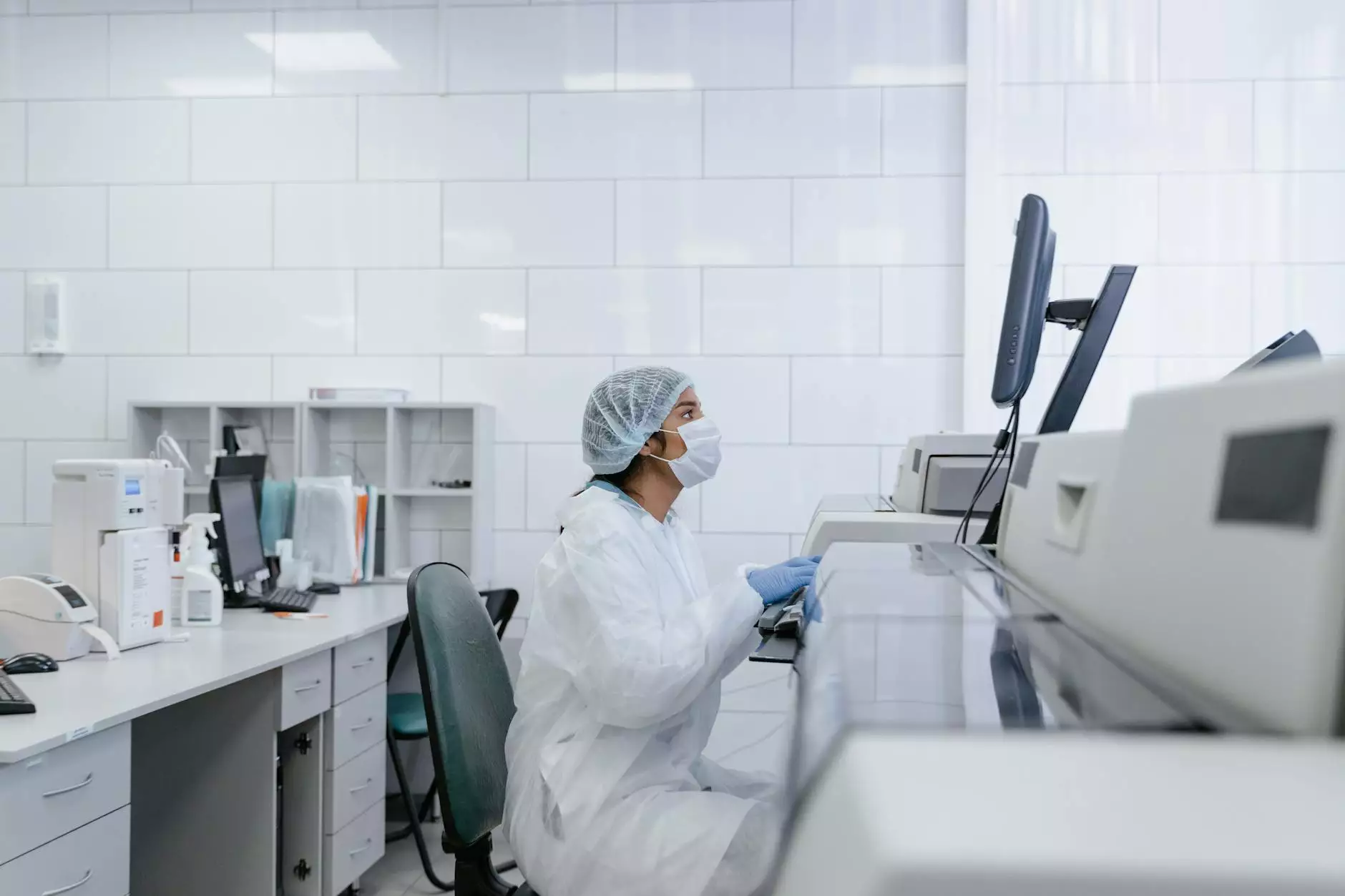Unlocking Innovation: The Role of Biotech Incubators in Advancing Health and Medicine

In the ever-evolving landscape of health and medical research, the need for innovation has never been more paramount. One of the driving forces behind this innovation is biotech incubators—specialized facilities that nurture emerging biotech companies and help bring groundbreaking health solutions to market. In this article, we will delve deep into the world of biotech incubators, examining their structure, purpose, and considerable impact on the fields of Health & Medical, Alternative Medicine, and Laboratory Testing.
What Are Biotech Incubators?
Biotech incubators are essentially supportive environments designed to help biotech startups succeed. They provide essential resources such as funding, laboratory space, mentorship, and access to a network of industry experts. By fostering collaboration and innovation, these incubators play a critical role in transforming early-stage ideas into viable health products and services.
The Structure of a Biotech Incubator
The infrastructure of a biotech incubator typically includes:
- Laboratory Space: Fully-equipped laboratories that enable startups to conduct research and development.
- Office Facilities: Workspaces for teams to collaborate and plan their business strategies.
- Mentorship Programs: Access to experienced professionals who provide guidance in areas such as regulatory compliance, funding, and product development.
- Funding Opportunities: Connections to investors and grants to help fledgling companies secure the necessary capital.
- Networking Events: Regular meetings and events that bring together entrepreneurs, scientists, and investors.
The Importance of Biotech Incubators
Biotech incubators serve as vital catalysts for the development of innovative solutions in healthcare. Here are several reasons why they are incredibly important:
1. Accelerating Innovation
One of the primary objectives of a biotech incubator is to fast-track the innovation process. By providing critical resources and support, these incubators help startups overcome the common hurdles of developing new technologies. This acceleration is crucial in the health sector, where new treatments and technologies can significantly improve patient outcomes.
2. Enhancing Collaboration
Biotech incubators create an environment that encourages collaboration among diverse groups, including scientists, entrepreneurs, and industrial leaders. This interdisciplinary approach often leads to creative solutions and novel therapies that might not have emerged in isolated settings.
3. Supporting Research and Development
With dedicated laboratory space and funding assistance, biotech incubators can facilitate extensive research and development. This support is vital for conducting the necessary experiments to validate new health solutions. As a result, innovative inventions can be swiftly transitioned from the research phase to clinical applications.
4. Reducing Operational Risks
Startups in the biotech sector often face significant risks due to the high costs of R&D and the complexities of regulatory processes. By being part of a well-structured incubator, these companies can mitigate risks through shared resources and expertise.
5. Access to Market Knowledge
Biotech incubators are often linked with universities, research institutions, and industry leaders, granting startups access to critical market knowledge. This information can be invaluable in shaping the development of products that meet unmet medical needs.
Biotech Incubators and the Future of Medicine
The future of medicine hinges on innovation, and biotech incubators are at the forefront of this transformation. Here are a few trends shaping the future of biotech incubators:
1. Focus on Personalized Medicine
As healthcare shifts towards personalized treatment plans, biotech incubators are increasingly nurturing companies that specialize in precision medicine. This movement relies on cutting-edge technology to tailor treatments to individual patients, promising more effective outcomes.
2. Expansion of Alternative Medicine
With a growing interest in holistic health approaches, many biotech incubators are exploring the crossover between traditional medicine and alternative therapies. Startups focusing on natural remedies, nutritional approaches, and integrative health solutions are gaining traction within these incubators.
3. Development of Digital Health Solutions
The rise of telemedicine and digital health solutions demonstrates a shift in how healthcare is delivered. Incubators are fostering startups that create innovative apps, wearable devices, and remote monitoring technologies, extending the reach of healthcare services to more patients worldwide.
4. Biophysical and Biochemical Innovations
Innovations in biochemistry and biophysics are expected to continue their rapid advance, particularly in drug development and molecular diagnostics. Biotech incubators are crucial in supporting these developments by providing essential laboratory space and access to advanced technologies.
Case Studies: Successful Outcomes from Biotech Incubators
To illustrate the power of biotechnology incubators, let’s look at some successful companies that emerged from these environments:
1. Amgen
Originally started in a small incubator, Amgen is now a global leader in biotechnology. Their work in developing therapies for various diseases has transformed the healthcare landscape significantly.
2. Genentech
Genentech's innovation was nurtured in a collaborative environment similar to that of biotech incubators, leading to several breakthrough drugs that have helped millions of people worldwide.
3. Moderna
As a recent success story, Moderna formed during its early stages in a biotech incubator. The company's rapid development of a COVID-19 vaccine demonstrated the immense potential and opportunities within the biotech incubator model.
The Challenges Faced by Biotech Incubators
Despite their many benefits, biotech incubators face several challenges that can hinder their effectiveness:
1. Funding Limitations
Many incubators rely on external funding sources, which can be unpredictable. A lack of financial resources can limit the support they can provide to startups.
2. Keeping Pace with Rapid Changes
The biotech landscape is constantly evolving. Incubators need to stay abreast of the latest scientific advancements and regulatory requirements to provide relevant support to their startups.
3. Balancing Resources Between Startups
Incubators often host multiple startups at once, which can lead to challenges in resource allocation. Finding the perfect balance between providing support and encouraging independent growth is an ongoing challenge.
Conclusion: The Integral Role of Biotech Incubators in Healthcare Evolution
The impact of biotech incubators on the health and medical fields cannot be overstated. These supportive environments foster innovation, reduce risks, and enhance the potential for new breakthroughs that can change lives. As we look to the future, the continued support for biotech incubators will be crucial in navigating the challenges within healthcare and ensuring the availability of next-generation treatments.
As the demand for innovative health solutions grows, so too does the significance of biotech incubators. By championing collaboration, supporting innovation, and confronting challenges head-on, these incubators are pivotal in shaping a healthier future for all.



